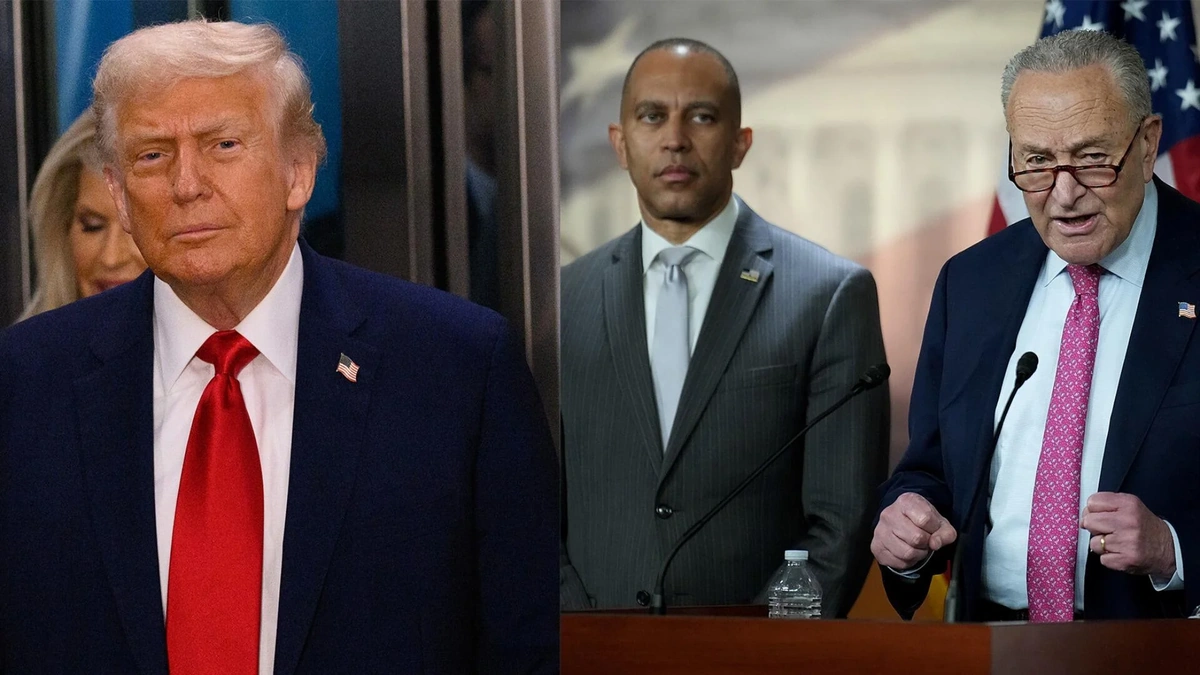Okay, so you’ve probably seen the headlines: OMB memo, government shutdown – sounds like Washington being Washington, right? But here’s the thing: these aren’t just abstract political terms. A potential shutdown, driven by disagreements over government funding, can have ripple effects that touch your life in ways you might not expect. This isn’t just about politicians arguing; it’s about the services and resources you rely on every day.
The “Why” | Unpacking the OMB Memo

Let’s be honest – government jargon can be a real snooze-fest. But the OMB, or Office of Management and Budget, is kind of a big deal. Think of them as the government’s chief financial officer. When they send out a memo about shutdown preparations, it’s a signal that things are getting serious. The memo basically tells federal agencies to prepare for a scenario where funding dries up. This isn’t a guarantee of a shutdown, but it’s a clear warning sign, pushing agencies to review contingency plans and identify essential services that must continue.
But why does this happen? The root cause is often disagreements in Congress over the federal budget. Different parties have different priorities, and if they can’t agree on a spending plan, the government can grind to a halt. The stakes are high, and the consequences can be far-reaching. It’s not just about delayed paychecks for federal employees (although that’s a serious issue); it’s about the potential disruption of vital services that everyday Americans depend on. Understanding the political climate is very important at this time.
How a Shutdown Impacts Your Daily Life | Beyond the Headlines
So, what happens when the government shuts down? Here’s where it gets real. Many government services are deemed non-essential and temporarily suspended. National parks might close (bummer for vacation plans). Passport processing could slow down (travel headaches, anyone?). And while essential services like air traffic control and law enforcement continue, they might be stretched thin.
But there’s more. Government contractors, who provide a wide range of services, can also face disruptions, impacting everything from IT support to janitorial services. Even economic data releases might be delayed, making it harder to assess the overall health of the economy. A common mistake I see people make is thinking a shutdown is purely a D.C. problem. It isn’t. It trickles down.
The Emotional Toll | Uncertainty and Anxiety
Let’s not forget the human side of this. Imagine being a federal employee, not knowing if you’ll get your next paycheck. The stress and anxiety can be immense. It’s not just about the money; it’s about the feeling of instability and uncertainty. This affects families, communities, and the overall morale of the workforce. While sources suggest a specific resolution date, the official confirmation is still pending. It’s best to keep checking official sources to stay updated on potential government funding and shutdown timelines. Understanding the role of the electoral process is crucial for understanding governmental changes.
Navigating the Uncertainty | What You Can Do
While you can’t control what happens in Washington, you can take steps to prepare. First, stay informed. Follow reputable news sources and avoid getting caught up in partisan bickering. Second, if you’re a federal employee or contractor, understand your rights and responsibilities. Know who to contact for information and support. Third, be patient. Government shutdowns are often temporary, and services will eventually resume. In the meantime, try to remain calm and focus on what you can control. One thing you absolutely must double-check during uncertain times is your emergency fund. A federal budget impasse can be tough, make sure you have some safeguards in place.
Let me rephrase that for clarity: prepare, but don’t panic. It’s easy to get swept up in the negativity, but remember that shutdowns are a (frustratingly) normal part of the political process. This isn’t a zombie apocalypse; it’s a temporary disruption.
Understanding the Long-Term Implications
Beyond the immediate disruptions, government shutdowns can have long-term consequences. They can damage the economy, erode public trust in government, and make it harder to attract and retain talented federal employees. Repeated shutdowns can create a climate of instability that discourages investment and innovation. What fascinates me is how shutdowns have become almost routine. Is this the new normal? It’s something to ponder. It’s important to understand the complexities surrounding a government shutdown , its origins, and its potential ramifications.
FAQ | Your Questions Answered
Frequently Asked Questions
What exactly is an OMB memo?
It’s a communication from the Office of Management and Budget directing federal agencies to prepare for a potential lapse in funding.
How long do government shutdowns usually last?
It varies. Some last only a few days, while others can drag on for weeks. There’s no set timeline.
Will I still get my Social Security check during a shutdown?
Yes, Social Security payments are considered essential and will continue uninterrupted.
What if I have a flight scheduled and air traffic controllers are affected?
Air traffic control is considered essential, so flights should continue. However, delays are possible.
Are military personnel affected by government shutdowns?
Active-duty military personnel generally continue to work, but their paychecks might be delayed.
How does the debt ceiling relate to government shutdowns?
While technically different, both involve congressional disagreements over spending and can lead to financial uncertainty.
Ultimately, the OMB memo and the potential for a government shutdown are reminders that democracy can be messy. But it’s also a system that, despite its flaws, is designed to ensure accountability and responsiveness to the needs of the people. So, stay informed, stay engaged, and don’t lose hope. Even in the face of uncertainty, we can still shape the future we want.




